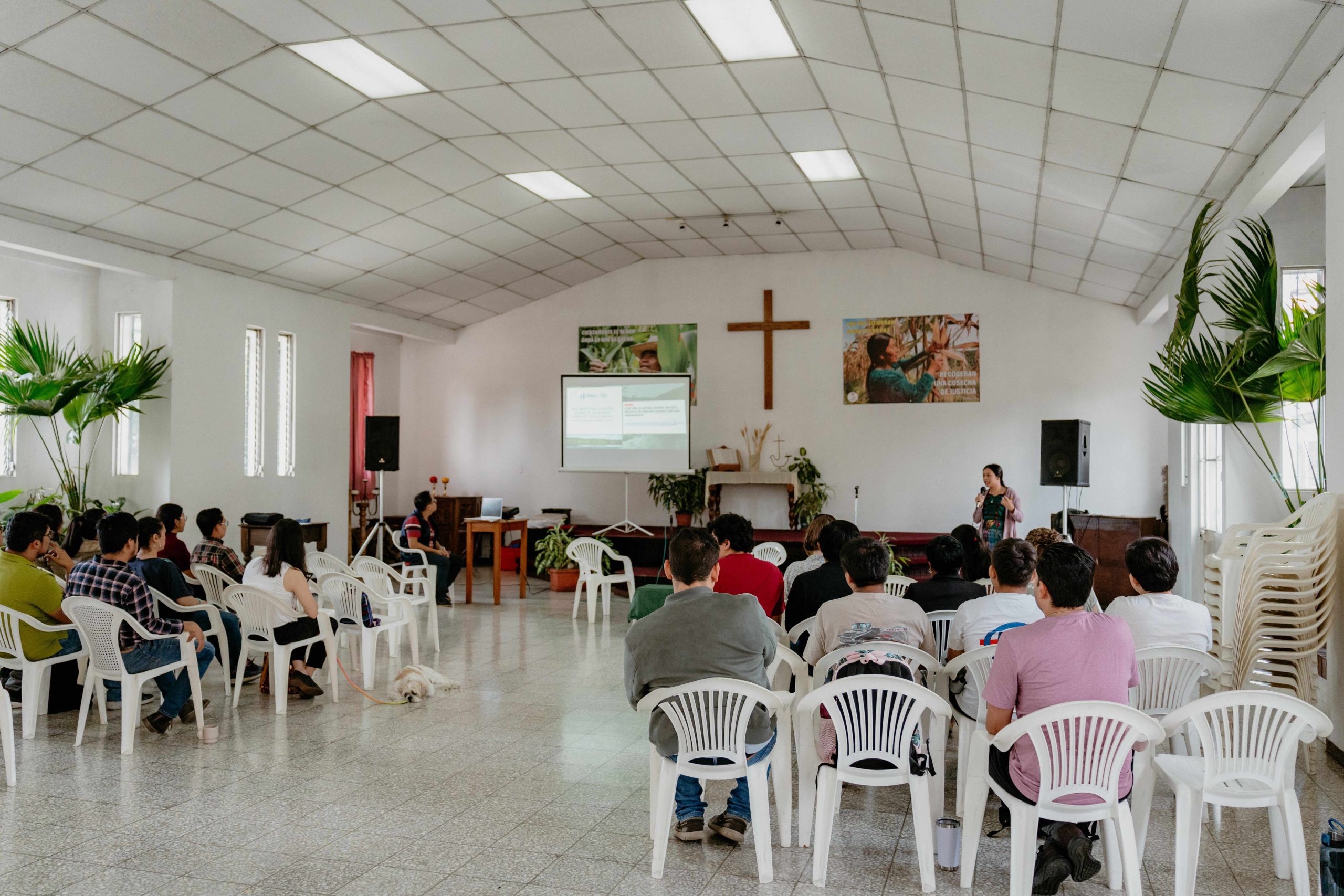
Guatemala: Hopeful actions in a vulnerable place
In an unimposing church building in the middle of Guatemala City, thirty-two people have gathered – university students, professionals, and church members. They are concerned about the environmental crisis. What hope is there? They have come to hear speakers share insights from science, theology, and indigenous knowledge. What difference can they make?
It’s a pressing question. Guatemala is cited as one of ten countries most vulnerable to the effects of global heating. In the last few years, climate chaos has caused droughts, floods, and landslides. It has increased food and water insecurity in a country already suffering from deforestation and pollution.
But what can a student do? Is there any hope?
“There is much to be done, but there is hope.”
“As difficult as it may seem, I believe there is hope for our relationship with the environment, if we begin to recognize our deep-rooted mistakes.”
This is what participants concluded at the end of the event organised by Venuz Pérez López as part of her Logos and Cosmos Initiative (LCI) project. The LCI is an outworking of IFES’ global vision to support and shape students who will impact all of society for the glory of Christ. It equips young Christian academics to lead projects that spark curiosity and wonder about God’s Word and God’s world, and the relationship between theology and the sciences.
This is exactly what Venuz was achieving in that room. Her seminar, entitled Uniting knowledge: a reflection on the environmental crisis through the lenses of science, ecotheology and indigenous peoples, brought together different perspectives – igniting hope and inspiring practical solutions. Discussion around climate change has often been confined to scientific knowledge. But Venuz believes there is more – and that we can wisely use science in the pursuit of justice for God’s kingdom.
Venuz, who recently completed her master’s degree in integrated water management, has been working closely with the IFES national movement, Grupo Evangélico Universitario de Guatemala (GEU), introducing students to her multi-disciplinary approach. The seminar she organised at Casa Horeb Church included students from GEU regional groups (Huehuetenango, Chiquimula, Guatemala, and Sololá). But it also attracted non-Christian students, providing a forum in which everyone could see the relevance of faith to all areas of life.
Venuz continues the work of her LCI project through a virtual course she designed and runs called With Science and Faith for the Environment. “The objective is that participants recognize God as creator and strengthen their connection with creation so they can contribute to environmental solutions on their campuses, both short and long term,” she explains. With fifteen students from Guatemala, Honduras, Mexico, Peru, and Chile taking part, it will inspire action across Latin America.
There is hope. Students can make a difference.
Pray for Venuz and students in Guatemala:
- Give thanks for Venuz and her husband Johnny, who has also planned and implemented an environmental LCI project. Pray their faith and work will continue to ignite hope and inspire action.
- Pray for the student movement GEU: it is raising awareness about creation care with workshops and a practical guide, which is now included in the training plan for all new student leaders.
- Pray that non-Christians will be touched by the faith and action of their Christian peers and want to find out more about Jesus and the hope he brings.
